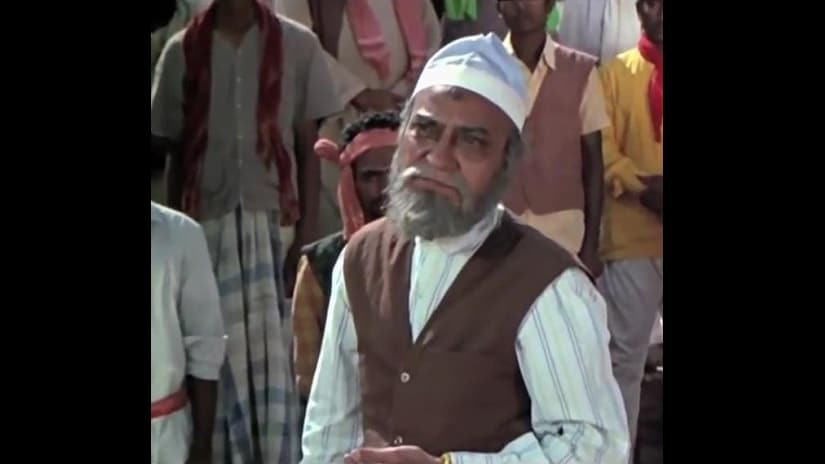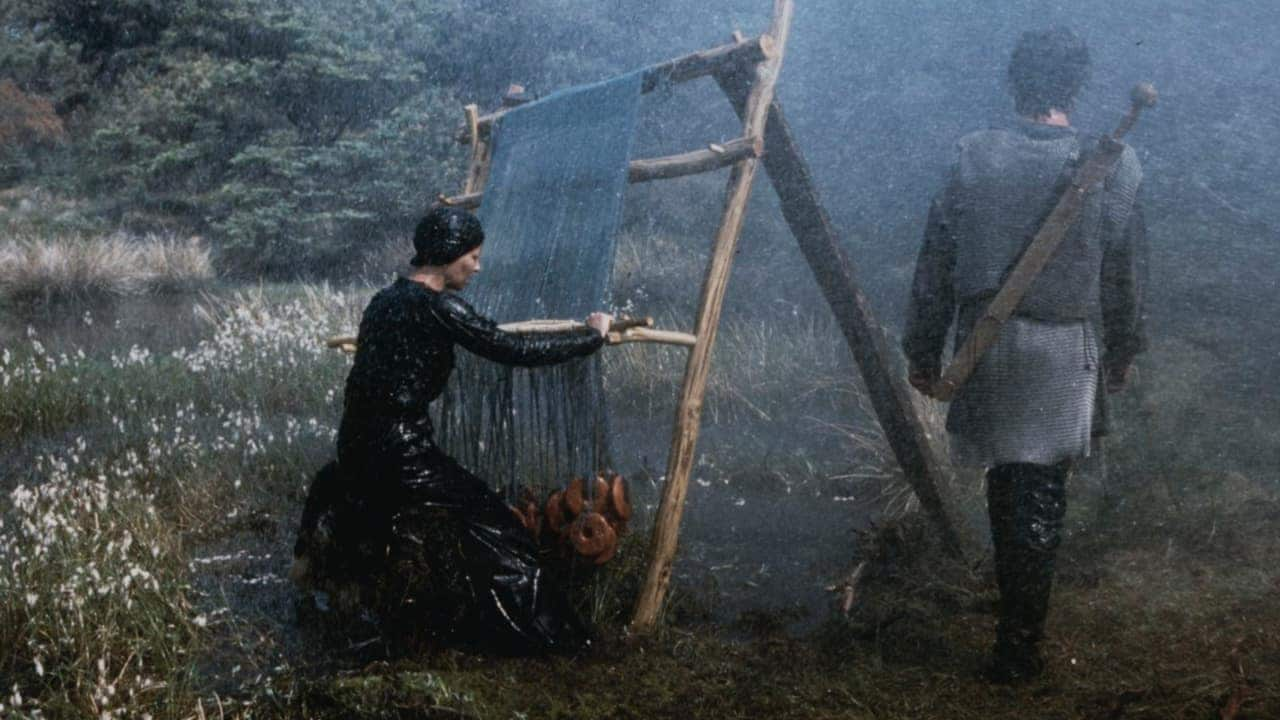Being alone with your loved ones is awesome — until it isn’t. And many of us, I’m sure, are finally beginning to understand what Jack Nicholson’s character was going through in _The Shinin_g. I mean, even without a haunted hotel, even if you are just at home, the fact that everyone is in everyone’s face all the time, day after day, week after week — it’s enough to drive you homicidal, even if only at the thought level. Medea, of course, went one step further. She committed thought to deed. She killed her two young sons, though for a very different reason. First, a bit of history about the character, who’s the heroine of one of the most famous Greek tragic plays, written by Euripides. She’s married to Jason, whom she met during his quest for the Golden Fleece. (Some of you may recall the 1963 film, Jason and the Argonauts, which featured memorable stop-motion animation by the legendary Ray Harryhausen.) She falls in love with him and helps him — and his men, the Argonauts — on their adventures, going to the extent of killing her own brother, Absyrtus, to help Jason and the Argonauts escape. [caption id=“attachment_8243841” align=“alignnone” width=“825”]  A still from Pier Paolo Pasolini’s Medea[/caption] This is the first clear (and, yes, disturbing) sign of how much Medea loved Jason, and the incident is depicted in the 1969 Italian film directed by Pier Paolo Pasolini, which starred the opera singer Maria Callas. (This was her only film role.) Medea asks Absyrtus to help her steal the Golden Fleece from their tribal temple, and they ride out in a horse-drawn cart to deliver the prize to Jason. But her father’s army comes in pursuit, and she needs a stalling tactic. So she kills and dismembers Absyrtus. The walls of the cart hide the gore, but eventually his head tumbles out. Later, it’s found by the army behind, which is forced to stop to collect it. They are forced to stop again, a little ahead, when they find a hand. Is this the act of a sister or a serial killer? As modern audiences, some of us may have to wrap our heads around this kind of love, which is perhaps why Pasolini devotes almost an hour of Medea to events that occurred before Euripides’ play begins. King Creon, at one point, tells Medea, “Everyone here knows you are an expert in spells, because you came from a barbaric land.” In the first stretch of his film, Pasolini depicts this barbarism through a detailed, graphic scene of human sacrifice. A young man is killed, and his blood and organs are distributed to the tribe’s people, who then perform rituals to appease Nature. No one weeps for the man who is sacrificed. Is he an orphan? Or does his family accept this as inevitable? Either way, we see Medea as a product of this tribe, which possibly explains her killing of her brother: it’s another “sacrifice”. Seeing all this, any sane man would run for his life — but then, this is Greek mythology. Jason marries Medea. They have two beautiful boys. And then, he decides to marry the Corinthian princess Glauce, daughter of King Creon. How do you say “uh oh, bad move” in Greek? Jason’s (weak) explanation is that marrying a princess will secure his future (and Medea’s and their children’s). But King Creon doesn’t trust Medea and her “barbaric” roots. He exiles her. But before leaving, Medea finds a way to kill Glauce. Then, she kills her children and sets their house on fire. Jason, outside, screams: “Aren’t you suffering too now?” She says: “I want to suffer!” He pleads that he wants to bury his children, caress “those poor, innocent bodies”! She says: “Go and bury your bride… The tears you shed now are nothing! You’ll realise this when you’re old! [caption id=“attachment_4331309” align=“alignnone” width=“825”]  AK Hangal in Sholay. YouTube screengrab[/caption] That is her revenge, and it reminds you of the famous scene in Sholay, where AK Hangal’s Imam sahib discovers that his son has been killed and sent back to the village on a horse. A crowd gathers. Imam sahib breaks down. The terrified villagers urge Thakur to see reason and stop his war against Gabbar Singh. They protest, “Hum is musibat ka bojh nahin utha sakte,” that they can’t bear this burden anymore. Then, without raising his voice, Imam sahib rebukes the villagers by reminding them of what he’s just lost, saying that if he is willing to support Thakur, the others had no business opposing him. He puts this thought across beautifully, by picking up on the word bojh that was tossed around a moment ago: “Jaante ho duniya ka sabse bada bojh kya hota hai? Baap ke kandhon par bete ka janaaza.” That’s what Medea wants Jason to discover: the feeling of losing your children when you are still alive, a feeling that will intensify as you grow older, lonelier. Lars von Trier’s Medea — made for Danish television, in 1988 — sticks closer to the play, in that it begins with Medea’s rage and pain after learning about Jason and Glauce. (The film is based on a script by Carl Dreyer. In a note, von Trier says, “This is not an attempt to make a ‘Dreyer film’, but with due reverence for the material [it is] a personal interpretation and homage to the master.”) [caption id=“attachment_8243831” align=“alignnone” width=“825”]  Lars Von Trier’s Medea. Image from Youtube[/caption] Lars von Trier takes us into her mind. She says: “My life is as empty as this bed that we used to share when I was still of use to him. He was my all. Why must women bear so much? Wordlessly submissive in body and deed? What rights have women? A man may seek new friends. She has nobody but him. He claims she enjoys security while he lives on the battlefield… I’d rather bleed behind a shield than bearing a man’s children.” In renouncing her children, she almost seems to be renouncing her womanhood. In this version, Medea hangs the children. The director said: “[Dreyer] wanted to give them poison. He thought it was too violent to have them knifed, which is what happens in the classical drama… He just wanted them to die in their sleep… I chose to make it more dramatic. I think there’s more edge to my version as a whole. I thought it better to hang the children. And more consequential. Either you kill them or you don’t. The action ought to be presented as it is. There’s no reason to tidy it up and make it look more innocent than it is.” That certainly makes sense, for in this version, Medea is explicit about her intent: “By their death I can strike their father.” We see the deaths, and we see why the sight will stay with Jason till his dying day.
Being alone with your loved ones is awesome — until it isn’t. And many of us, I’m sure, are finally beginning to understand what Jack Nicholson’s character was going through in _The Shinin_g. I mean, even without a haunted hotel, even if you are just at home, the fact that everyone is in everyone’s face all the time, day after day, week after week — it’s enough to drive you homicidal, even if only at the thought level.
Advertisement
End of Article


)
)
)
)
)
)
)
)
)



